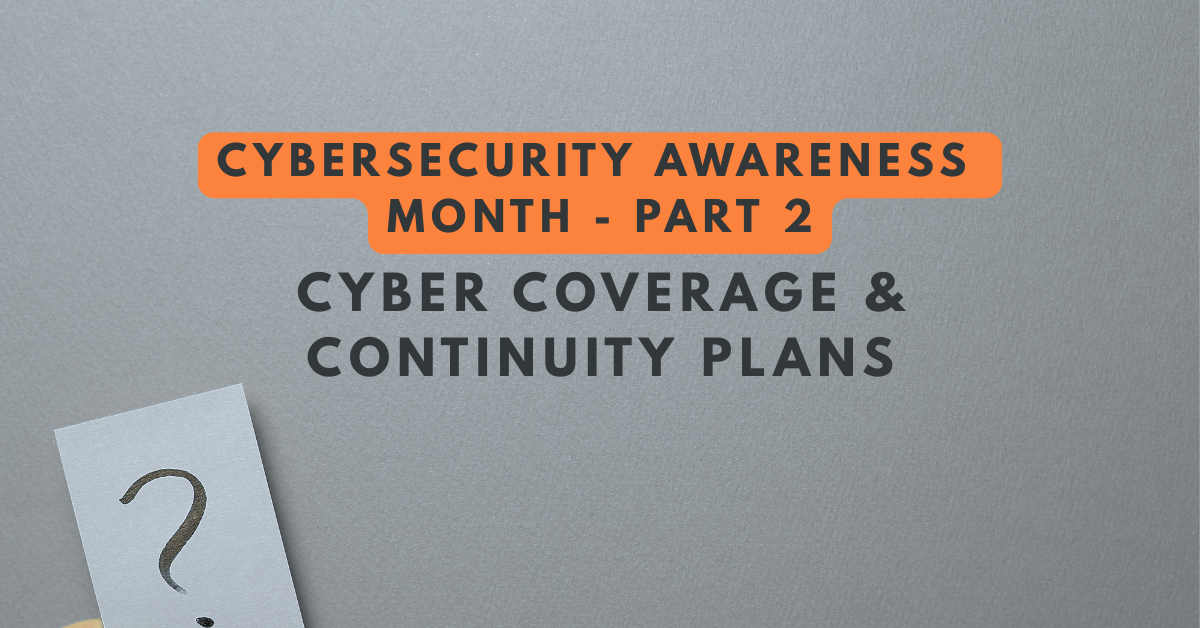Significant Claims and Coverage Related Laws
See How We're Different
or call us: (858) 384‑1506
In a recent post, our agency provided resources for those affected by the Los Angeles fires, and many readers were thankful for the section “Significant Claims and Insurance Coverage Related Laws,” released by the California Insurance Commissioner on 1/9/2025.
I thought it would help to provide the section of the resources page in a separate document for those seeking an understanding of the insurance code.
- Actual Cash Value Calculation: Under an open policy, the measure of indemnity in fire insurance is the expense to the insured of replacing the thing lost or injured in its condition at the time of the injury, the expense being computed as of the time of the commencement of the fire. Under an open policy that requires payment of actual cash value, the measure of the actual cash value recovery, in whole or partial settlement of the claim, for either a total or partial loss to the structure or its contents, shall be the amount it would cost the insured to repair, rebuild, or replace the thing lost or injured less a fair and reasonable deduction for physical depreciation based upon its condition at the time of the injury or the policy limit, whichever is less. A deduction for physical depreciation shall apply only to components of a structure that are normally subject to repair and replacement during the useful life of that structure (Cal. Ins. Code section 2051).
- Replacement Cost Value Calculation: Under an open policy that requires payment of the replacement cost for a loss, the measure of indemnity is the amount that it would cost the insured to repair, rebuild, or replace the thing lost or injured, without a deduction for physical depreciation, or the policy limit, whichever is less (Cal. Ins. Code section 2051.5[a]).
- Time Limit to Collect Full Replacement Cost: An insured will have no less than 12 months (from the date that the first payment toward the actual cash value is made) to collect the full replacement cost of the loss, subject to the policy limit. In the event of a loss relating to a “state of emergency,” as defined in California Government Code section 8558, an insured will have no less than 36 months (from the date that the first payment toward the actual cash value is made) in order to collect the full replacement cost of the loss, subject to the policy limit. Additional extensions of six months shall be provided to policyholders for good cause (Cal. Ins. Code sections 2051.5[b][1] and [2]).
- Rebuilding in Current Location or Rebuilding or Replacing in a New Location: In the event of a total loss of the insured structure, a policy issued or delivered in this state shall not contain a provision that limits or denies, on the basis that the insured has decided to rebuild at a new location or to purchase an already built home at a new location, payment of the building code upgrade cost or the replacement cost, including any extended replacement cost coverage, to the extent those costs are otherwise covered by the terms of the policy or any policy endorsement. However, the measure of indemnity shall not exceed the replacement cost, including the building code upgrade cost and any extended replacement cost coverage, if applicable, to repair, rebuild, or replace the insured structure at its original location (Cal. Ins. Code section 2051.5[c][1]).
- Land Value Deduction: For a residential property insurance policy, the measure of damages available to a policyholder to use to rebuild or replace the insured home at another location shall be the amount that would have been recoverable had the insured dwelling been rebuilt at its original location, and a deduction for the value of land at the new location shall not be permitted from that measure of damages. However, the measure of indemnity shall not exceed the cost, including the building code upgrade cost and any extended replacement cost coverage, if applicable, to rebuild the insured structure at its original location (Cal. Ins. Code section 2051.5[c][2]).
- List of Items Covered – Additional Living Expenses (ALE): If requested by the insured, this section requires insurance companies to provide the insured with a list of items that an insurer believes would be covered under the policy (Cal. Ins. Code section 2060[a]).
- Time Limit to Collect Additional Living Expenses (ALE): In the event of a covered loss relating to a state of emergency, as defined in California Government Code section 8558, on and after July 1, 2021, coverage for additional living expenses (or loss of use) shall be for at least 24 months from the inception of the loss, but shall be subject to other policy provisions. An insurer shall grant an extension of up to 12 additional months, for a total of 36 months, if an insured acting in good faith and with reasonable diligence encounters a delay or delays in the reconstruction process that are the result of circumstances beyond the control of the insured. Circumstances beyond the control of the insured include, but are not limited to, unavoidable construction permit delays, lack of necessary construction materials, and lack of available contractors to perform the necessary work. Additional extensions of six months shall be provided to policyholders for good cause (Cal. Ins. Code section 2060[b][1]).
- Uninhabitable/Reasonable Habitation (ALE): If the insured home is rendered uninhabitable by a covered peril, on and after July 1, 2021, a policy that provides coverage for additional living expenses shall not limit the policyholder’s right to recovery. However, an insurer may, in lieu of making living expense payments required by this subdivision, provide a reasonable alternative remedy that addresses the property condition that precludes reasonable habitation of the insured premises. The additional living expense coverage subject to this section does not include a utility public safety power shut off event, which is the deenergization of a portion of the electrical distribution or transmission system to reduce the risk of wildfire ignition (Cal. Ins. Code section 2060[b][2]).
- Restricted Access by Civil Authority (ALE): In the event of a state of emergency, as defined in Gov. Code section 8558, for a loss that is otherwise not subject to Cal. Ins. Code sections 2060(b)(1) and (2) above that is accompanied by an order of civil authority restricting access to the home, related to a covered peril, on and after July 1, 2021, additional living expense coverage shall be provided for at least two weeks. Additional extensions of two weeks shall be provided to a policyholder for good cause, but shall be subject to other policy provisions (Cal. Ins. Code section 2060[c]).
- Additional Living Expense (ALE) Advance Payment: In the event of a covered loss relating to a state of emergency, as defined in California Government Code section 8558, the following special provision shall apply under a residential property insurance policy:(1) If an insured has made a claim for additional living expenses related to a total loss, an insurer shall, upon request by an insured, render an advance payment of no less than four months of living expenses. Additional payment for additional living expenses shall be payable upon proper proof following the advance period (Cal. Ins. Code section 2061[a]).
- Itemization of Contents: In the event of a covered loss relating to a state of emergency, as defined in California Government Code section 8558, the following special provisions shall apply under a residential property insurance policy:(2) If an insured has made a claim for contents related to a total loss of a primary residence, an insurer shall not require that the insured use a company-specific inventory form if the insured can provide an inventory using a form that contains substantially the same information. This subdivision does not limit the authority of an insurer to seek additional reasonable information from an insured upon receipt of an inventory form submitted by an insured.(3) If an insured has made a claim for contents related to a total loss of a primary residence, an insurer shall accept an inventory that includes groupings of categories of personal property, including clothing, shoes, books, food items, CDs, DVDs, or other categories of items for which it would be impractical to separately list each individual item claimed (Cal. Ins. Code section 2061[a]).
- Changing Claims Adjusters: If, within a six-month period, an insurer assigns a third or subsequent adjuster to be primarily responsible for a claim, the insurer shall provide the insured with a written status report. The written status report must include a summary of any decisions or actions that are substantially related to the disposition of a claim, including, but not limited to, the amount of losses to structures or contents, the retention or consultation of design or construction professionals, the amount of coverage for losses to structures or contents, and all items of dispute (Cal. Ins. Code section 2071). Note: In addition to the above, California Insurance Code section 14047 requires that for a claim arising from a state of emergency, if, within a six-month period, an insurer assigns a third or subsequent first-party real or personal property claims adjuster, the insurer shall establish a primary point of contact for the insured and provide the insured one or more direct means of communication with the primary point of contact.
- Appraisal: In the event of a government-declared disaster, as defined in the California Government Code, appraisal may be requested by either the insured or the insurance company but shall not be compelled (Cal. Ins. Code section 2071).
- Copy of Complete Policy After a Loss: After a covered loss under a policy covered by California Insurance Code section 2071, an insurer shall provide to the insured, free of charge, a complete, current copy of their policy within 30 calendar days of receipt of a request from the insured. The policy must include the full insurance policy, any endorsements, and the declarations page (Cal. Ins. Code section 2084).
- Building Code Upgrade Coverage: An open policy of residential property insurance that provides replacement cost coverage shall not be issued or renewed unless it provides additional building code upgrade coverage of no less than 10 percent of the dwelling coverage policy limits. The building code upgrade coverage required by this subdivision shall be additional coverage, and use of this coverage shall not reduce or deplete the dwelling coverage policy limits for the insured property. Insurers may offer building code upgrade coverage of greater than 10 percent of the dwelling coverage policy limits, in addition to providing the minimum coverage of 10 percent of the dwelling coverage policy limits (Cal. Ins. Code section 10103[c]).
- Ability to Combine Coverages: In the event of a claim relating to a state of emergency, an insured under a residential property insurance policy shall be permitted to combine payments for claims for losses up to the policy limits for the primary dwelling and other structures, for any of the covered expenses reasonably necessary to rebuild or replace the damaged or destroyed dwelling, if the policy limits for coverage to rebuild or replace the primary dwelling are insufficient (Cal. Ins. Code section 10103.7[a]).
- Payment of Contents Without Inventory: In the event of a covered total loss of a primary dwelling under a residential property insurance policy resulting from a state of emergency, if the residence was furnished at the time of the loss:(1) The insurer shall offer a payment under the contents (personal property) coverage in an amount no less than 30 percent of the policy limit applicable to the covered dwelling structure, up to a maximum of two hundred fifty thousand dollars ($250,000), without requiring the insured to file an itemized claim.(2) After receiving the payment described in paragraph (1), the insured may recover additional amounts up to the policy limit for contents coverage by filing a claim pursuant to the terms of the policy for the loss of contents that exceeds the value of the payment provided pursuant to paragraph (1).(3) When an insured files a claim relating to a state of emergency, as defined in California Government Code section 8558, the insurer shall notify the insured of the option to receive payment for loss of contents pursuant to paragraph (1) and of the insured’s option to subsequently file a full itemized claim pursuant to paragraph (2).(4) This subdivision does not affect payment under the policy for scheduled personal property.(5) This section does not prohibit an insurer from restricting payment in cases of suspected fraud (Cal. Ins. Code section 10103.7[b]).







